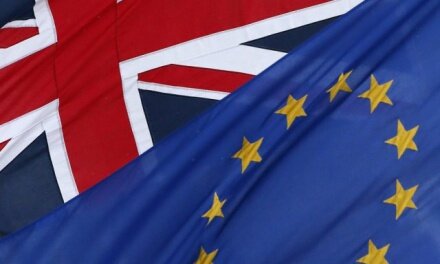
The Google tax deal that left us wanting more
By Sunny Singh
The miraculous George Osborne instigated a “major success” of UK tax policy recently by making Google pay £1.2bn less than what they should’ve paid, according to UK tax policy.
Legal tax avoidance has been occurring persistently since the conception of corporate tax due to the involvement of corporations in the creation and phrasing of legislation, making it easier for those very companies to exploit loop-holes and caveats. 2014 saw six of Britain’s biggest multinationals, including Shell, Lloyds Banking Group, and the drugs company AstraZeneca, pay a grand total of zero UK corporation tax despite collective global profits succeeding £30bn. These are companies which have actively utilised the UK consumer base as well as being conceived and innovated within the United Kingdom, but predominantly due to the use of tax havens have legally avoided paying corporation tax.
Where tax is collected, it is a sickeningly small amount. In 2014 HSBC and drinks group Diageo paid £238m between them to the UK on profits of more than £14bn: A rate of under 2%. More recently, HMRC’s deal with Google was not only pathetic in its amount but also pathetic politics. As soon as the deal was announced, Osbourne leaped to his Twitter account marking the deal as a “victory” before relaying the words to anyone within a five feet radius able to broadcast this “major success.”
tax bill is a victory for the action we’ve taken.I introduced Diverted Profits Tax.We now expect to see other firms pay their share
— George Osborne (@George_Osborne)
3% out of 20% paid. Hurrah for Osborne! You are completely forgiven for scrapping maintenance grants as well promoting austerity. Let the protests cease.
£130m for the last ten years on a profit of £7.2bn in the U.K is what Osborne deems a victory whilst the rest of us live with the realisation that we’ll be footing the remainder of the bill. Corporation tax receipts were equivalent to just 2.8% of GDP last year, compared to 3.6% in 2007, whilst income from social security and personal income tax rose as well as VAT. The big companies are consistently paying less, whilst we pay more.
Downing Street, rightly so, didn’t express the same enthusiasm as Osborne regarding the deal.
The deal was scrutinized extensively by MPs claiming it is an awfully little amount. Well, turns out it is even lower than previously thought. Filings by Google UK show that £33m of the £130m related to share options, which are exempt from UK tax, leading to a payment of under £100m to the British economy. Outrageous.
What is even more worrying is HMRC’s unwillingness to state where it got its initial £130m figure from due to “confidentiality” – we’ve had £1.2bn stolen from our bank not only with permission, but by initiation. Stolen is the only appropriate word: there was no clear justification. Yes, the Treasury does not discuss individual tax payments (as our Chancellor has, on numerous occasions, pointed out) but it should. If special circumstances apply to big corporations in order to circumvent legislation which applies to everyone, the figures and circumstances should then be disclosed so everyone can enjoy the same loopholes. I’d happily watch the British economy crumble if I was on a yacht in Bermuda instead, as would you I presume. Perhaps this is the way to motivate legislative changes.
Whilst the HMRC cannot, surely it is in the best interest of companies to disclose how much tax they pay – assuming they are following the law? Some companies are not even willing to disclose how much UK corporation tax they pay, making the 20% rate more of a guideline. BP’s refusal to disclose how much tax they paid in 2014 suggests something darker altogether – they simply don’t care. The 2010 oil spill saw almost 5 million barrels worth of oil end up in the gulf of Mexico, all due to improper checks on oil rigs, leading to a clean-up job which caused hundreds of toxic spill-exposure cases around Louisiana. This does not include the eleven people that went missing on the gulf, never found, directly due to improper checks. The irony? Checks that were conducted were by engineers paid for by the taxpayer. To think they’d understand the importance of taxes by now.
A boat floating through spilled oil after the BP Deepwater Horizon disaster. Photo by: Kris Krüg
The deal may have gotten some money in the bank, but it is nowhere near a solution. It has undermined international efforts in combatting tax avoidance by settling for less than what legislation intended, rather than what legislation allows. Building close relationships with businesses is imperative but the minute they start to influence the law they can prove corrosive to the economy and, as a result, to the people. Even France has stood up and said Google’s minimal tax arrangements in the country is unfair. François Hollande lobbied Obama over tax practices dismissed as ‘not acceptable’ and has lodged a claim for €1bn. Why haven’t we done the same?
Whilst it can be unanimously agreed that, ethically, corporations should pay the percentage of tax asked by the nation they operate in based on their profits, it is up to the governing nation to claim those taxes, which they simply don’t at the moment. Osborne expressed a need for more Britain-based businesses which would therefore pay the asked-for amount. I can only assume he missed the memo at the start of this article: that is not the solution. It doesn’t help either that our government is accommodating for big companies to move out of the UK and into the very tax havens which are costing our economy billions.
Worst of all? It’s all legal. There is a thin line between tax avoidance and tax fraud and until we make the distinction clear, our economy will continue to lose millions of pounds.





























Discussions